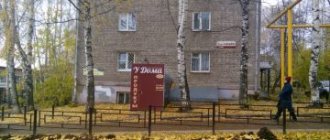Sample written consent of neighbors for an extension to the house
2. Outbuildings intended for raising livestock and poultry should be located at a distance of at least four meters from the neighboring property.
3. Bathhouses, garages and other buildings that are not intended for raising livestock or living in can be built at a distance of at least one meter from the neighboring plot. Although the sample consent of neighbors for the construction of a house and other construction work is drawn up in free form, there are some uniform requirements that must be taken into account when drawing up the document: It is also appropriate to indicate in the document what changes will be made as a result of construction.
Consent of neighbors to reconstruct the house
Hello! CONSENT for the reconstruction, reorganization and (or) redevelopment of premises, as a result of which part of the common property in an apartment building in the city _______________ "__"___________ ____ ____________________ will be added to them, being the owner of the residential (non-residential) premises (full name .) in an apartment building at the address: ________________________________________, which is confirmed by the Certificate of Ownership dated “__”____________ _____, N ________, having ________% of the votes, acting on the basis of Part 2 of Art. 40 of the Housing Code of the Russian Federation, hereby gives consent to the reconstruction, redevelopment and (or) redevelopment of premises, as a result of which part of the common property in an apartment building will be added to them. Owner _____________/___________________________/ (signature) (full name)
1/2 share of the house in the property, there is permission for reconstruction, but without the consent of the neighbors, reconstruction has begun, the house is old without repair, 60 years old with four walls, can I continue the reconstruction - I want to cut out part of the rotten wall and replace it with a solid frame.
Sample owner's consent to reconstruct a non-residential building
Collecting documents for reconstruction is quite a troublesome task, so some owners of non-residential premises carry out work at their own peril and risk, without obtaining the necessary papers. Their actions fall immediately under two parts of the article of the Code of Administrative Violations (Code of Administrative Violations of the Russian Federation):
Thus, despite the absence in Part 2 of Art. 23 of the Housing Code of the Russian Federation, instructions on the right of a local government body to require the applicant to provide the consent of all owners of an apartment building at the stage of deciding the issue of transferring residential premises to non-residential premises, if such transfer is related to the need to carry out work on the reconstruction of the house or to providing the applicant with part of the common land for these purposes plot, provided that this land plot is transferred in the manner established by Art. 16 of the Federal Law “On the entry into force of the Housing Code of the Russian Federation” into the common shared ownership of the owners of the premises of an apartment building, then in these cases the provisions of Parts 2 and 3 of Art. 23 of the Housing Code of the Russian Federation must be applied in conjunction with the rules that provide for the need to obtain the consent of all owners or a decision of the general meeting of owners of premises in an apartment building.”
RAA Law
Consent for the reconstruction of a residential building. The owner of a land plot can erect buildings and structures on it, carry out their reconstruction or demolition, and permit construction on his plot to other persons. These rights are exercised subject to compliance with urban planning and construction norms and rules, as well as requirements regarding the intended purpose of the land plot (clause 2 of Article 260 of the Civil Code of the Russian Federation).
We recommend reading: How much do they pay for child benefits under 18 years of age?
I, gr. KULAGIN VALERY PETROVICH, born 08/18/1968, place of birth _____________, citizen of the Russian Federation, gender _____, passport 03 03 989898, issued by the PVS Department of Internal Affairs of the ___________ district of the city. Moscow 02/12/2002, department code 232-002, registered: city. Moscow, st. Tolbukhina, house No. 46, apt. No. 54,
Reconstruction of capital construction projects (page 2)
At the same time, it does not undermine the general thesis that:
i) separate parts of such buildings may be transferred for rent\use\easement (in civil circulation),
ii) the building may be in common shared ownership with the determination of the order of use.
- buildings divided into premises in which there is a “property and legal cocktail”:
i) individual premises are in the sole ownership of their owners and represent independent objects of ownership, and
ii) common property is in common shared ownership of the owners of all independent premises (for example, apartment buildings).
Consent/permission is required for reconstruction:
- the owner of the entire single building or
- owners of all independent premises in a divided building.
If a single building is in common shared ownership, then it is necessary to obtain consent for reconstruction from all co-owners.
Even if an agreement on the procedure for use is concluded between the co-owners of the building, in accordance with which each co-owner uses his own premises in the building, the owner cannot reconstruct the building in part of the premises that he has in use, without the consent of the other co-owners, since :
- in this case, it is not the premises that are being reconstructed, but the entire building;
- an agreement on the procedure for using a building between its co-owners relates to the use, and not the disposal, of the building;
- the reconstruction of the building is at his disposal, therefore, a separate consent is required for the reconstruction, despite the fact that an agreement on the procedure for use has been concluded.[16]
If reconstruction is carried out in relation to a building divided into premises, and the owner of one of the premises does not give consent to the reconstruction, then he cannot be obliged by court to give such consent.
If the reconstruction is carried out by the owner himself, then the owner's consent is assumed.
The owner's consent to the reconstruction of the building is a condition for issuing an administrative-legal permit for reconstruction, which cannot replace the owner's consent.
Clause 6) clause 7 art. 51 GSK: the application for a construction permit is accompanied by the consent of all rights holders of the OKS in the event of its reconstruction.
Stockmann case.
Based on the project and permits from the State Construction Supervision and Expertise Service of St. Petersburg, SPb Center prepared the construction of a Trade and Office Complex at the address: Nevsky Prospekt, 114, lit. "A". The project provides for strengthening the foundation of the neighboring house 4 lit. And on the street Vosstaniya (owned by the Hotel).
During the preparation of construction, St. Petersburg Center introduced micropiles into the body and base of the foundation of building 4 without the consent of the Hotel. -Hotel filed a negative claim to restore its building to its original condition.
13The Arbitration Court of Appeal indicated: “as a general rule, third parties do not have the right to take any actions in relation to property of which they are not the legal owners, possessors or users”[17]. The court recognized strengthening the foundation of a building without the consent of its owner (plaintiff) as a violation of the plaintiff’s property rights, and also noted that obtaining permits for the construction of a building is not a basis for limiting the property rights of third parties to neighboring buildings.
In this case, the claim was denied, since restoration of the original state was no longer physically possible.
Also see Resolution of the Federal Antimonopoly Service of the North-Western District dated January 1, 2001 in case No. A56-29775/2010 on this situation (the court refused to oblige the Stockmann company to seal the window openings).
2.2. Consent of the owner of the land plot for the reconstruction of the building located on the plot
As a general rule, the owner of a land plot has the right to build/rebuild objects located on the plot.
According to Art. 263, paragraph 2 of Art. 266, paragraph 2. Art. 269 Civil Code of the Russian Federation, sub. 2 p. 1 art. 40, Art. 41 of the Land Code of the Russian Federation, the owner, the subject of the right of permanent (perpetual) use and lifelong inheritable ownership of a land plot has the right to reconstruct or demolish buildings located on the site.
Providing title documents for a land plot is one of the conditions for issuing a permit for reconstruction (subclause 1, clause 7, article 51 of the Civil Code).
Paragraph 3 p. 2 art. 3 Federal Law-169 “On architectural activities in the Russian Federation” “construction of any object must be carried out with permission from the owner of the land plot and (or)
buildings, structures..."
Thus, if a building is located on a land plot that belongs to a third party, then the owner of the building cannot reconstruct it without the consent of the land owner[18].
A lease agreement for a land plot located under a building and owned by the state, concluded in accordance with Art. 36 of the Land Code of the Russian Federation, cannot replace the consent of the public owner of the land plot for the reconstruction of the building[19].
Get full text
2.3. Permission for the reconstruction of a public authority
Permission for reconstruction (construction) is the basis for the implementation of an architectural project (clauses 1, 2, 7, article 51 of the Civil Code; clause 2, article 3 of Federal Law-169 “On architectural activities in the Russian Federation”).
Obtaining a permit is not required, in particular, for the construction, and therefore for the reconstruction of a garage, on a land plot provided to an individual for purposes not related to business activities (subclause 1, clause 17, article 51 of the Civil Code).
A building permit is secondary to the consent for reconstruction by the owner of the building and land plot. From sub. 1, 6 p. 7 art. 51 of the Civil Code follows that when obtaining permission for reconstruction, it is necessary to submit the consent of the copyright holders of the building, as well as title documents for the land plot.
2.4 Consequences of the lack of various permits (approvals) for reconstruction
General rules on unauthorized construction
Clause 1 Art. 222 Civil Code of the Russian Federation
An unauthorized building is a residential building, other building, structure or other real estate:
- created on a land plot not allocated for these purposes in the manner established by law and other legal acts, or
- created without obtaining the necessary permissions
- or with a significant violation of urban planning and construction codes and regulations.
If at least one of these criteria is present, new construction is unauthorized and the unauthorized construction is subject to demolition and is not subject to civil rights[20].
Extension of rules on unauthorized construction to reconstruction
In general, the rules on unauthorized construction apply to the reconstruction of public safety buildings, but there are a number of exceptions:
1. The court obliges a person to demolish unauthorized reconstructed real estate only if it is established that the object cannot be restored to the state that existed before such work was carried out (clause 28 of the Resolution of the Plenums of the Supreme Court of the Russian Federation and the Supreme Arbitration Court of the Russian Federation No. 10/22 “On some issues arising in judicial practice when resolving disputes related to the protection of property rights and other property rights”, hereinafter referred to as “Post. 10/22”
).
Who must prove that bringing a reconstructed object to its original state is impossible?
FAS NWO: plaintiff[21], but this is, in fact, the introduction by judicial practice of an additional condition, in the presence of which demolition is possible?!
2. Art. 222 of the Civil Code of the Russian Federation applies to unauthorized reconstruction of real estate, as a result of which a new object arose
(Clause 28 of Post. 10/22).
It turns out that, according to the Plenums, if a new object does not arise during reconstruction, then the rules on unauthorized construction do not apply and this reconstructed object cannot be demolished, and, apparently, can be registered in the Unified State Register.
The arbitration courts considered one of the cases in which it was recognized that the reconstruction did not lead to the creation of a new facility, and therefore, the reconstructed building cannot be demolished:
LLC "August" owned non-residential premises located in a one-story building: Moscow, st. Sharikopodshipnikovskaya, 17/17.
August added 3 floors to the building.
The prefecture of the South-Eastern Administrative District of Moscow filed a claim for the demolition of the unauthorized building, believing that all necessary permits had not been obtained for the reconstruction.
The arbitration courts rejected the claim, including with reference to the fact that
— reconstruction — change of OKS parameters
- therefore, the reconstruction of a real estate property is not the creation of a real estate property
- therefore, the object obtained as a result of reconstruction is not an unauthorized construction,
— in connection with which, the provisions of Article 222 of the Civil Code of the Russian Federation in this case are not subject to application.
The decisions of the arbitration courts were upheld by the Supreme Arbitration Court of the Russian Federation.[22]
On another matter
The individual entrepreneur owned non-residential premises in the building at the address: 6 “a” (cafe “Skazka”).
In December 2001, a fire occurred in the said building and the building was partially burned out.
began to restore it on the site of the burnt cafe
(frame made of metal structures, brick walls, etc.) without permission for construction and reconstruction.
The administration of the city of Belgorod filed a claim with the arbitration court for the dismantling of what had been erected.
The claim was denied citing the fact that:
— restoration of the café building, partially damaged as a result of a fire, is not the construction of a new facility and does not meet the criteria of unauthorized construction;
— the ongoing reconstruction of a fire-damaged building does not contradict current legislation and does not violate the rights and legally protected interests of other persons;
- therefore, the rules on demolition (Article 222 of the Civil Code of the Russian Federation) do not apply here.
The decisions were upheld by the Supreme Arbitration Court of the Russian Federation.[23]
Some criteria to determine when, as a result of reconstruction, a new object arises for the purposes of applying the rules on unauthorized construction were given by the Federal Antimonopoly Service of the North-Western Territory:
From the interpretation of Article 222 of the Civil Code of the Russian Federation, taking into account clause 28 of the Post. 10/22 that it is necessary to establish whether a new object arose as a result of unauthorized reconstruction.
| Due to the large volume, this material is placed on several pages: 2 |
Sample consent of neighbors for the construction of a house or redevelopment of an apartment
- Permission must be in writing and cannot be considered granted only with the verbal consent of the neighbors.
- Permission must be granted by the owners, and not by tenants or residents of neighboring apartments (dacha plots).
- The document is drawn up like any other application from an individual, with a “header” indicating who is the author of the permit and to whom it is addressed.
- The document indicates the full name, passport details and home address of all neighbors and the initiator of construction.
- The permit must be signed by the owners of neighboring premises (areas).
- The authorization must be dated on the day it was drawn up or signed.
In cases where, in order to carry out construction work, it is necessary to obtain the consent of neighbors for an extension, a sample of which can be seen below, it is better not to neglect legal norms. Before carrying out planned construction work, it is necessary to clarify whether it is possible to legalize changes without obtaining permission from neighbors. If new extensions and redevelopments will not reduce the quality of life and recreation or disturb the peace of neighbors, obtaining consent for construction work is often very simple.
PRO new building 7 (499) 450-27-46 (Moscow)
If there is no response within three months, but a notification is received that the letter was delivered personally to the addressee, you can safely submit documents for redevelopment: it will be considered that the neighbor has given his permission.
- When renovating common areas. For example, the owner decided to equip a vestibule. Since he is “borrowing” part of the common area, he will need to obtain the permission of all the inhabitants of the staircase.
- When changing the facade of a building. For example, when increasing the area of the balcony or changing the location of the window, as well as when equipping a separate entrance to the apartment.
- When rebuilding the sauzla. For example, if the owner wants to swap the toilet and bathroom, or add a bathroom to the hallway. It should be taken into account that you cannot install bathrooms above living rooms, even if the neighbors do not mind.
- When combining an apartment and an attic space , that is, turning the apartment into a two-level one. The attic is a common area of the house, so it is necessary to obtain the consent of all owners of the house, as well as the management company.
Why is neighbors' consent required for redevelopment?
Having contacted the relevant authorities, the neighbor got the owner of the air conditioner to install a double-glazed window that would protect him from unnecessary noise. However, if the owner of a private house had received his permission in advance to install an external unit, then the neighbor’s claims would have been unfounded.
For example, if the redevelopment does not affect common property, then the consent of neighbors is not required, but in some cities of the country, in order to legitimize certain types of work, confirmation of neighbors is required (moving the kitchen to another part of the apartment, installing a sewer pump, etc.).
Sample owner's consent to reconstruct a non-residential building
If this is a normal repair that does not affect structures that affect the characteristics of the house, then the consent of the neighbors is not required. Permission is required if the redevelopment affects the safety of residents.
Building your own home requires obtaining various permits. Such permits are issued only by specially authorized government bodies. In the absence of a building permit, the owner may face certain problems. Thus, a house may be recognized as an unauthorized building, which may result in legal consequences for its owner, including the demolition of the house.
Consent of neighbors for an extension or redevelopment of an apartment
- in the form of a written statement, which is provided from each resident of the house. In this case, you will need to go to the neighbors, notify them about the planned redevelopment and ask for written consent. This option is suitable for houses with a small number of apartments;
- in the form of a notarized consent obtained during a meeting of residents. This option is relevant if it is necessary to obtain consent for reconstruction and reconstruction work.
Important! Having a permit for construction work in hand, you can simplify the procedure for legalizing the reconstruction or construction of a new structure on your own site. If the reconstruction is carried out in a privatized apartment that has several owners, then permission will be required from all owners.
Privileges
At the same time, in our country there are many citizens who are supported by the state, and they are provided with a large number of benefits, but they do not apply to gas supply. There are concessions only for gas payments. The federal government left the right of choice to local authorities to provide benefits to various categories of citizens.
- large families;
- home front workers;
- WWII participants and widows of those killed in WWII;
- disabled people of 1st and 2nd groups;
- minor prisoners of fascism;
- disabled people of the Second World War;
- citizens who were in besieged Leningrad
This is important to know: Voluntary abandonment of a land plot in shared ownership
Structure and sample consent of neighbors for redevelopment
- partial staircase or entrance foyer;
- a balcony on the ground floor, when it is planned to be designed as an extension to the house;
- 2-3 apartments located nearby, in one room;
- attic, when an apartment located on the top floor turns into a two-level one (in this case, the consent of the owner of the house will also be required);
- arrangement of a new entrance with a porch;
- ventilation equipment that will be located on the outside of the house;
- other.
- If the redevelopment has already been done, then you will have to invite a specialist from the Housing Inspectorate, he will testify about the violations, after which the owner will be able to receive his registration certificate for the apartment from the BTI, but with red lines. You will also have to order a floor plan for the entire house.
- It will be necessary to order a project (sketch). If repair work has not yet been carried out, then this stage will be the first for the owner. Then the project will have to be coordinated with the Housing Inspectorate and receive from them a technical opinion on the list of works that can or cannot be carried out in this room.
- Based on the project, it will be possible to carry out a redevelopment, then invite an inspector from the Housing Inspectorate and receive a certificate of completion of the work.
- You will also have to separately call employees of such regulatory authorities as the Ministry of Emergency Situations, SES, Rospotrebnadzor, Energonadzor, etc., they are required to give a conclusion that the premises comply with fire safety, sanitary standards, etc.
- The final approval for redevelopment is issued by the interdepartmental commission (IMC). When she signs the permit, she can receive a new registration certificate from the BTI, and then enter information about the premises through the registration chamber into the database to obtain a new certificate of ownership.
We recommend reading: What you need to get an Extract from the Unified State Register
Redevelopment of non-residential premises: approval and how to legalize it in 2020
If the work is carried out to improve the premises without affecting the load-bearing supports, utilities and the general functional purpose of the premises is preserved, then there is no need to obtain permission from the supervisory authorities. The Town Planning Code speaks about this in Article 51, paragraph 4.4. In other cases, permission is required.
Redevelopment of non-residential premises without approval from the relevant authorities
Upon completion of the redevelopment work, a technical plan of the structure is drawn up and the cadastral registration authorities are notified. Corresponding changes are made to the information of the GKN (State Real Estate Cadastre), the owner is issued a new technical passport of the premises with the amendments made.
We recommend reading: Young Family Program Krasnoyarsk 2020 Conditions
The customer initially engaged our company to take measurements of the premises and clarify their areas in relation to the information registered in the Unified State Register of Real Estate. Specialists from our organization carried out measurements and prepared technical passports for the premises.
What redevelopment of non-residential premises is is not strictly defined by law - there is no corresponding regulatory act at the federal level, only some provisions of the Housing Code can be projected into this area. Redevelopment is a complex of works; according to the town planning code, such a concept is not disclosed. It is easier to understand the definition of redevelopment using the example of specific cases and types of real estate.
Cases of approval of redevelopments
The content of work to change the characteristics of a room or building may vary significantly. If the planned work involves changes to the load-bearing structures or facades of the facility, it is not the redevelopment that needs to be approved, but the reconstruction. In this case, a construction permit is issued, and the procedure for preparing documents will be significantly longer. The said permit is issued through the supervisory authorities.
- incomplete package of documents;
- inaccuracies and errors in design documentation;
- non-compliance of the planned work with the requirements of reconstruction;
- inadmissibility of performing certain works related to violations of construction and sanitary standards, etc.
Ownership implies certain powers. The owner uses and disposes of real estate at his own discretion. Owners are aware of these privileges, but some believe that from the moment they purchase and register a non-residential assignment, they can do whatever they want with it. This is a misconception. You can use the construction site, but any reconstruction work must be approved and officially documented.
Responsibility for unauthorized reconstruction
The goal of any reconstruction is to improve the condition and operational characteristics of the building. Owners organize work for personal purposes and at their own expense, but the process of implementing construction projects may affect the interests and rights of other citizens. In order to ensure the legality of the actions of the owners and the safety of others, the state controls this process. Today, all property owners, without exception, are required to obtain permission to reconstruct a non-residential building, and the document must be in hand before the start of the planned work.
We will tell you how to speed up the processing of permits and avoid problems with justice.
Such costs also lead to endless conflicts that end in litigation involving various types of government services, which, according to the law and the logic of things, must resolve such situations.
How to obtain and draw up consent from neighbors to build a house closer than three meters to the property line
- if a private residential building is being built, it must be located next to the border with the neighboring plot at a distance of more than three meters;
- when constructing any outbuilding, the distance between it and the neighboring site must be more than one meter;
- if a toilet or sauna, bathhouse or compost pit is being built, then they must be located at a distance of more than 8 meters from the neighboring territory.
Before directly drawing up this document, it is important to accurately determine the construction site , and it is also advisable to make a project. If new communications are laid to the bathhouse, then this should also be communicated to neighbors if this issue affects their areas.
Neighbor’s consent to construction along the boundary - how to get a sample
During individual construction, it will be necessary to focus on the norms of the Civil (Clause 1, Article 263 of the Civil Code of the Russian Federation) and Town Planning Codes (Article 51). And in each specific case, comply with the technical requirements of the main by-law.
Building permit from neighbors
In addition to obtaining a permit, the consent of neighbors may be required to build a house. The need for such approval is caused by the impossibility of fully complying with fire safety requirements, construction and sanitary standards. To draw up this document, it is recommended to use a sample permission from neighbors to build a house.
If the database does not contain information about the owner of the site, then you can legally publish an announcement in the local print media about the approval of construction, as well as the necessary boundary work. Be sure to indicate the time and place of the approval. If the owner of a neighboring plot does not appear at this event, this is equivalent to giving his consent to carry out construction work.
Notice of reconstruction of part of the house
In this case, it matters which part of the house we are talking about. If the reconstruction is carried out on a certain area allocated to the applicant under an equity participation agreement, then additional approvals will be required. In addition to the title documents for your share in the residential property, the following should be attached to the notice:
- Reconstruction project for part of a property;
- Technical passport of the residential premises;
- Consent of owners under the share participation agreement.
The rest of the procedure will be standard. It is carried out according to the same scheme as described above. The main difference is the written consent of each co-owner of the property. Or you will have to allocate your share in kind. If both options are impossible, the only option is to go to court.
The situation is simplified if you submit a notice to renovate part of a house that you own entirely. In this case, the procedure will be standard if there are no minor children registered in the living space, whose interests will have to be taken into account. You can find out more details from the lawyers of our company. They will also draw up a notification and arrange for its approval.
Why is neighbors' consent required for redevelopment?
- glazing of balconies through which fire escapes pass;
- dismantling the fire escape from the balcony;
- installation of a heating radiator on the balcony;
- installation of heated floors with connection to common house communications;
- installation of a fireplace in panel houses;
- dismantling load-bearing walls or installing openings in them.
Obtaining consent for redevelopment in a communal apartment is required from all persons living in it, even if the repair work does not affect their interests. This is due to the fact that in communal apartments all neighbors are home owners, even if the shares have been demarcated.
Sample consent from a neighbor for the reconstruction of a private house
Please note: measurements are taken from the base of the house, or, in its absence, from the wall. If the protrusion of the elements of the house (canopy of the building, parts of the upper floors, for example, a balcony) is more than half a meter, then measure from these protrusions. Permission is also required in the case of redevelopment of premises in an apartment building and transfer of residential premises to non-residential premises.
Such a decision can be made by the owners at a general meeting; the minutes of this meeting must be attached to the documents authorizing the reconstruction. Registration procedure Any change in residential premises begins with obtaining permits for redevelopment, reconstruction or reconstruction. The more complex the home renovation, the more approvals will be required.
What is the reconstruction of a private residential building: how to avoid refusal and obtain permission
Reconstruction is often compared to redevelopment or major renovation. But this is a mistaken opinion. Redevelopment involves changes only to the interior of the house, major repairs involve the replacement or restoration of some elements, and reconstruction involves changing the area and facade of the room.
After checking the documents, the Pension Fund of the Russian Federation transfers 50% of the subsidy amount to the account of the capital recipient within 2 months, and the remaining money is transferred no earlier than six months after receiving the first part. To do this, you must re-apply to the Pension Fund of the Russian Federation with an application and certificate of inspection of the reconstruction. This document is issued by the department of architecture and urban planning in the administration.
Interesting read: Sick Leave Income Category






